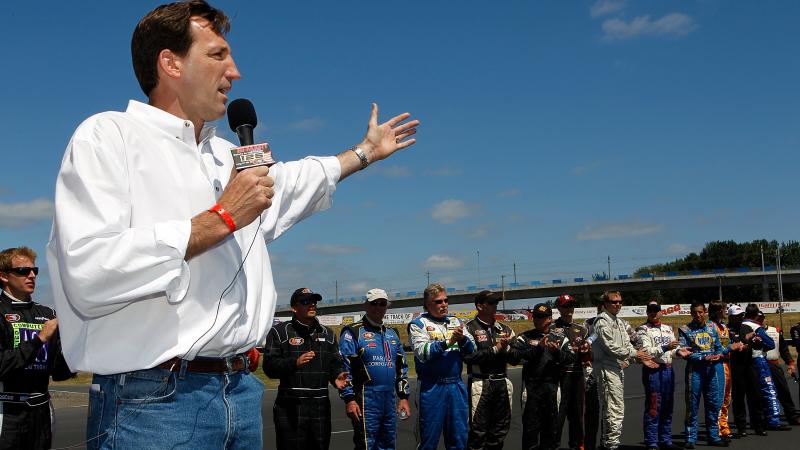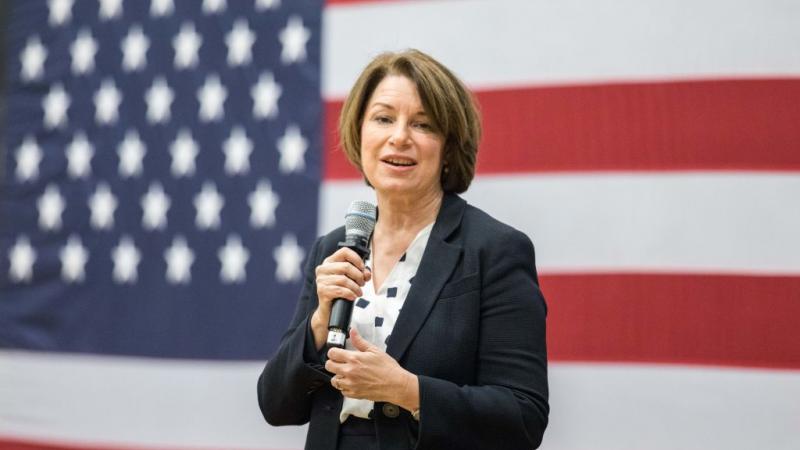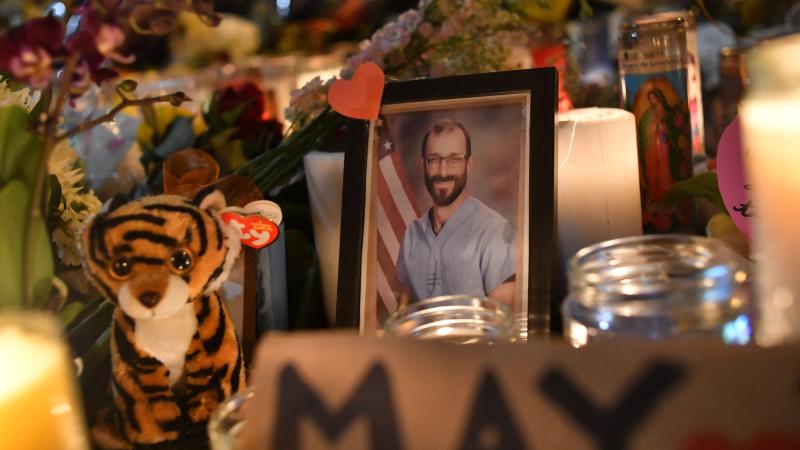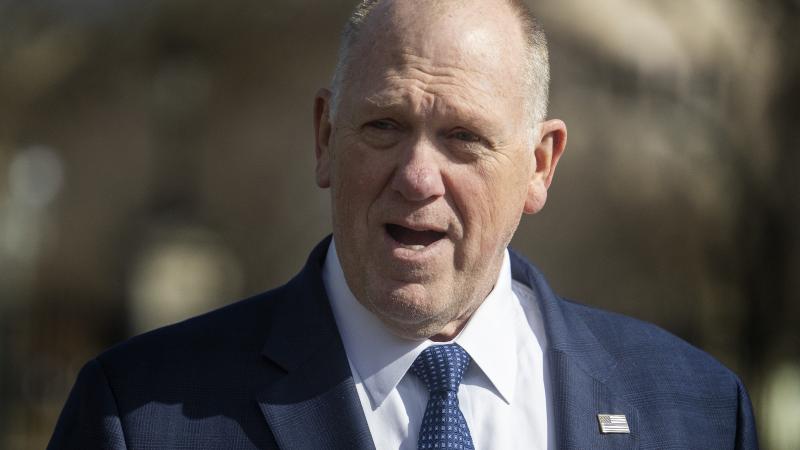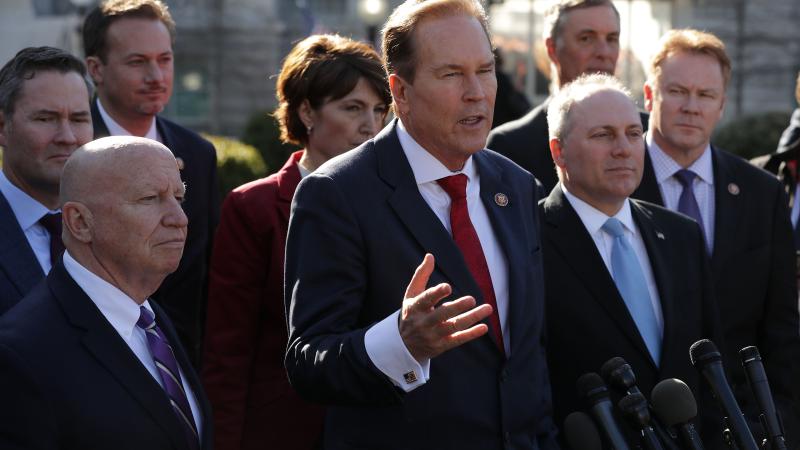Sanders heads into South Carolina debate, primary with air of invincibility
Sanders takes delegate lead and momentum into South Carolina debate, primary
Democratic presidential candidates return to the TV debate stage Tuesday night ahead of this weekend’s South Carolina primary -- hoping to slow frontrunner Sen. Bernie Sanders’ surge and keep their campaigns alive as their 2020 primary race heads south, then toward delegate-rich Super Tuesday.
Sanders, a democratic-socialist, has had top finishes in the first three nominating states -- Iowa, New Hampshire and Nevada -- and is looking for another strong showing in South Carolina on Saturday.
A victory would further solidify Sanders' frontrunner status going into Super Tuesday, on March 3, when roughly one-third of the 3,979 pledged delegates needed to win the party nomination are at stake.
The 78-year-old Sanders, a Vermont Independent running on the Democratic ticket, already shows strong support in two of the 14 Super Tuesday states that each have a large cache of super delegates -- California with 494 and Texas with 261.
However, several other Democratic candidates still have a path to victory, though time is quickly expiring.
Former Vice President Joe Biden, an early frontrunner, was expected at the start of the election cycle to do well in South Carolina, considering his support from African Americans, who account for about 28 percent of the South Carolina population.
However, flat debate performances and unexpectedly strong challenges for the party’s moderate vote from Minnesota Sen. Amy Klobuchar and a former Indiana mayor, Pete Buttigieg, have put Biden’s campaign in jeopardy.
Sanders now leads the delegate race with 43, followed by Buttigeig at 26, Biden at 13, Massachusetts Sen. Elizabeth Warren at 8 and Klobuchar at 7.
The possibility of Sanders winning the nomination concerns Democrats who fear that General Election voters -- particularly independents, moderates and other swing voters -- will reject his liberal and costly agenda that includes free higher education and health care.
Buttegieg and Biden each pounced on recent comments Sanders made in support of policies by ex-Cuban dictator Fidel Castro.
“As a Democrat, I don’t want to explain why our nominee is encouraging people to look on the bright side of the Castro regime when we’re going into the fight of our lives,” tweeted Buttigieg, who also remains disciplined about making his larger argument the need to deny President Trump a second term.
The Sanders comments, which aired Sunday on CBS’s “60 Minutes,” sparked widespread bipartisan criticism. But by Monday, he was back on TV affirming the Castro remarks with hardly any response -- suggesting they will have no significant impact on voters.
Warren’s well organized campaign that showed much promise this past summer is also falling behind, in large part because she’s competing with Sanders for the party’s liberal vote.
Klobuchar has shown remarkable resilience, particularly roaring back from a poor Iowa showing with a commanding debate performance that helped her to a third-place New Hampshire finish and a reported influx of campaign contributions.
But like the other second-tier candidates, the big question is whether a weak showing in South Carolina and on Super Tuesday will result in donors moving to more viable candidates and the end of her campaign.
Klobuchar has also pulled from the brink during debates to remind voters that her ultimate goal is to defeat Trump.
“Donald Trump went after me at his rally tonight,” Klobuchar tweeted Thursday. “I’ll take that as a badge of honor. He knows we’re rising and will beat him in November.”
Former New York Mayor Michael Bloomberg on Tuesday will appear in his second debate, in Charleston, South Carolina.
The first debate for which he qualified, in Nevada, was widely considered a poor showing. Bloomberg will need a stronger showing in this debate, though he is not on the South Carolina ballot.
However, Bloomberg is not facing the same money problems as other second-tier candidates.
The wealthy businessman has already put a reported $450 million-plus into his campaign, which on Super Tuesday is on state ballots for the first time, and intends to finance his race to its finish.
On Monday, he also took aim at Sanders, attacking the senator’s voting record on gun safety, a signature Bloomberg issue, with a new video.
“The NRA spent thousands of dollars to get Bernie Sanders elected to Congress, and despite national efforts to end gun violence he continued to vote with them. He voted five times against the Brady Bill,” said Bloomberg campaign manager Kevin Sheekey. “With gun violence becoming a regular part of American life Bernie Sanders stood on the sidelines."

